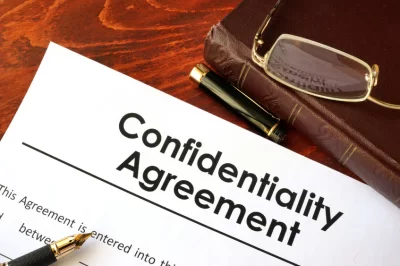Building to Sell: 5 Ways to Increase Business Value Before Selling

5 Ways to Increase Business Value Before Selling
A buyer’s due diligence will focus on how well value can be transferred to a new owner and any risks involved in the transferring of that value.
Unfortunately, it is often the case that by the time a business owner thinks about exiting, the horse has bolted - too late to build in strategies or grow areas that could have maximised the business's value.
Here are our 5 top tips for business owners to have top of mind as they grow so that the value in their business is optimised before they are ready to list and sell.
1. Secure Customer Contracts
Strong customer relationships and contracts are key to your business’s value. Before selling, review how these relationships are secured. Fixed-term and recurring revenue contracts offer the most value, but keep in mind that it must be possible to effectively transfer them if you’re selling the business itself rather than shares in the company. If selling shares, customer contracts usually stay the same unless they have a ‘change of control’ clause.
Make sure to review and adjust these contracts as needed well before you’re ready to list your business for sale.
2. Solidify Key Relationships
A buyer will want assurances that key relationships will continue. If your business relies on important arrangements with outside services or suppliers, ensure these are secured with contracts before the sale.
When it’s time to sell, a buyer will place a higher value on your business if you can show there are contractual assurances protecting key relationships and that these have been in place for some time (ie they have ongoing certainty of supply).
3. Protect Intellectual Property
Intellectual property (IP) can be a significant asset, and is often fundamental to the operation of the business. Unfortunately ownership is often an afterthought, and IP matters are often left unclear, therefore lacking security of tenure for the future (and any future owners).
Make sure all IP, like brand assets, website code, design, processes or recipes, copyright, and licences, are all clearly identified as IP and ownership is secured.
Before selling, establish proof of ownership and protections for all IP so you can easily show buyers you are the rightful owner and that value can be transferred.
4. Optimise ALL Lease Agreements
For businesses that depend on physical locations, securing a long-term lease is vital to ensure you have maximised your potential business value - and should be done well before exit.
Review all leases to ensure they have favourable conditions to allow the lease to transfer to a buyer. If the premises are essential to the business, or the fit-out cost is high, the buyer will value a lease that ensures long-term access to the premises. They might also be interested in purchasing the property or arranging a future purchase.
Leased assets should also be a key consideration for you as you grow, especially if they have a high cost to change.
5. Use Systems to Streamline Business Operations
Retention of employees and protection against turnover is generally not the first thing business owners think of when they are considering selling their business; however, this can be critical to the buyer’s perception of value in the business – particularly if the business is at a point where it is running smoothly without you - the business owner.
If you ensure you build your business using systems that will outlive employee turnover, the more value and less exposure your business is likely to have at exit.
Implement systems that minimise reliance on specific employees, making the business more stable and attractive to buyers.
Conclusion
A buyer’s due diligence will focus on how well value can be transferred and any risks involved in the transferring of value. Where value can’t be transferred or a risk is identified, the impact is usually seen in either the purchase price or how the price is structured, for example, the period of time a buyer wants you to stay on with the business post-sale (when all you want to be doing is relaxing on a beach in the Bahamas!).
Identifying risks early can help avoid a lower purchase price or unfavourable sale terms.
By addressing these areas, you can maximise your business's value and make it more appealing to prospective buyers (and more often than not, you’ll find it’s a better way to operate in the meantime).
Tags: selling a business exit strategy
About the author

Joanna Oakey
Lawyer and Managing Partner, Aspect Legal
Joanna Oakey is a commercial lawyer and deal maker with a passion for business, who has worked with hundreds of businesses during her 2 decades in the ...









